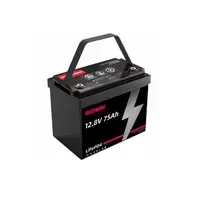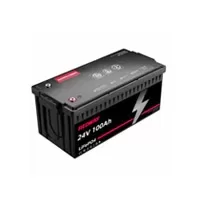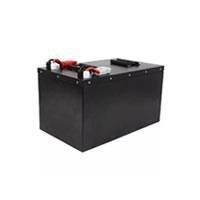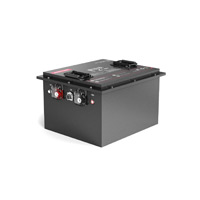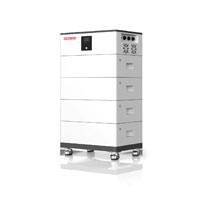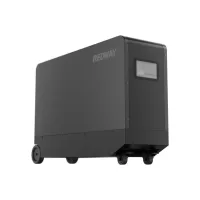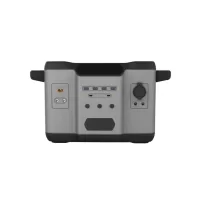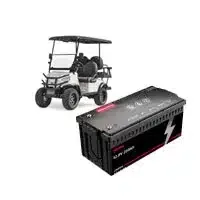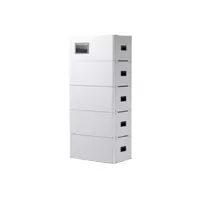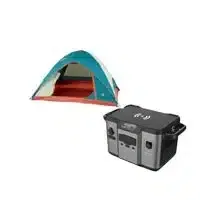(Click to Get a Quick Quote!)
Welcome to our latest blog post on the topic of lithium batteries! In this digital age, these powerful energy sources have become an integral part of our daily lives. From smartphones and laptops to electric vehicles and portable power banks, lithium batteries are everywhere. But have you ever wondered whether it’s safe to store them in your house? That’s exactly what we’re going to explore today. So sit back, relax, and let us shed some light on the risks and safety precautions associated with storing lithium batteries indoors. Let’s dive in!
The Risks of Storing Lithium Batteries Indoors
The Risks of Storing Lithium Batteries Indoors
When it comes to storing lithium batteries in your house, there are some risks that you need to be aware of. One of the main concerns is the potential for fire. Lithium batteries have been known to overheat and combust if they are not stored properly or if they become damaged.
Another risk is the release of toxic gases. If a lithium battery is punctured or damaged, it can release harmful chemicals into the air. This can be especially dangerous in enclosed spaces such as your home.
Additionally, improper storage can lead to short circuits. If lithium batteries come into contact with metal objects or other batteries, it can cause a spark and ignite a fire.
It’s also important to note that extreme temperatures can affect the performance and safety of lithium batteries. Exposure to high heat or cold temperatures can cause them to malfunction or even explode.
To minimize these risks, it’s crucial to store lithium batteries in a cool, dry place away from flammable materials and direct sunlight. It’s also recommended to keep them in their original packaging or use specialized storage containers designed for lithium batteries.
By taking proper precautions and being mindful of the potential dangers associated with storing lithium batteries indoors, you can help ensure the safety of yourself and your household.
Proper Storage and Handling of Lithium Batteries
Proper storage and handling of lithium batteries is crucial to ensure both safety and longevity. Here are some important guidelines to follow:
1. Store in a cool, dry place: It’s best to keep lithium batteries in an area with stable temperatures between 59°F and 77°F (15°C – 25°C) to prevent overheating or freezing.
2. Avoid exposure to extreme conditions: Lithium batteries should never be exposed to direct sunlight, high humidity, or excessive heat sources like radiators or ovens. These conditions can cause the battery cells to degrade quickly.
3. Use original packaging: If you need to store spare lithium batteries, it’s recommended that you keep them in their original packaging or use specially designed battery cases. This helps protect the terminals from accidental contact which may lead to short-circuiting.
4. Separate loose batteries: If storing loose lithium batteries, make sure they don’t come into contact with each other or other metal objects such as coins or keys. Wrap each battery individually in tape or store them in separate compartments within a case.
5. Check for damage before storage: Inspect your lithium batteries regularly for any signs of physical damage such as dents, leaks, or bulges. Damaged batteries should not be stored and instead disposed of properly at designated recycling centers.
Remember that proper storage and handling practices vary depending on the specific type of lithium battery being used – whether it’s rechargeable lithium-ion (Li-ion), non-rechargeable lithium-metal (Li-Metal), or others – so always consult the manufacturer’s instructions for accurate guidance.
Safety Precautions for Storing Lithium Batteries in the House
Safety Precautions for Storing Lithium Batteries in the House
When it comes to storing lithium batteries in your house, it’s crucial to prioritize safety. These compact powerhouses may be essential for our everyday gadgets, but they also come with potential risks if mishandled or stored improperly.
First and foremost, never store loose lithium batteries together with metal objects like keys or coins. This can lead to a dangerous short circuit and potentially cause a fire hazard. It’s best to keep them in their original packaging or use individual battery cases to prevent accidental contact.
Additionally, avoid exposing lithium batteries to extreme temperatures. High heat can cause them to overheat and possibly explode, while freezing temperatures can negatively affect their performance. Find a cool and dry area away from direct sunlight for storage.
Furthermore, take care not to puncture or damage the battery casing as this could lead to leakage of its contents which are highly flammable and toxic. If you notice any signs of damage such as swelling or leaking electrolyte, handle the battery with caution using gloves and dispose of it properly according to local regulations.
Always keep lithium batteries out of reach of children and pets. Although small in size, these batteries can pose serious health risks if accidentally ingested.
By following these safety precautions when storing lithium batteries in your house, you can minimize the risk of accidents and ensure the well-being of yourself and those around you. Stay informed about proper handling techniques so that you can continue enjoying the convenience that these powerful energy sources provide!
Alternatives to Storing Lithium Batteries Indoors
When it comes to storing lithium batteries, you might be wondering if there are any alternatives to keeping them indoors. While it’s important to prioritize safety, there are a few options that can help mitigate the risks associated with indoor storage.
One alternative is to store your lithium batteries in a detached garage or shed. These separate structures provide an extra layer of protection by keeping the batteries away from potential ignition sources and reducing the impact on your living space.
If you don’t have access to a garage or shed, another option is to invest in a fireproof storage container specifically designed for lithium batteries. These containers are made with materials that can withstand extreme temperatures and contain any potential fires caused by battery malfunctions.
Additionally, some local authorities offer designated drop-off locations where you can safely dispose of old or damaged lithium batteries. This ensures proper handling and disposal while minimizing the risk of accidents at home.
Remember, regardless of where you choose to store your lithium batteries, always follow recommended guidelines for safe handling and storage. Regularly inspect them for signs of damage or leakage and never mix different types or sizes together.
By exploring these alternatives, you can find a balance between convenience and safety when it comes to storing your lithium batteries outside of your home.
Conclusion: Balancing Convenience and Safety
Balancing Convenience and Safety
When it comes to storing lithium batteries in the house, it’s important to find a middle ground between convenience and safety. While these batteries are essential for powering our devices and gadgets, we cannot ignore the potential risks they pose.
To ensure maximum safety, always follow proper storage guidelines provided by the manufacturer. This includes keeping them away from flammable materials, avoiding extreme temperatures, and preventing physical damage. Additionally, consider investing in a fireproof storage container or bag specifically designed for battery storage.
Furthermore, be vigilant about regularly checking your batteries for any signs of damage or swelling. If you notice any issues, dispose of them properly according to local regulations.
While storing lithium batteries indoors may not be without risk altogether, there are alternatives worth exploring. For example, some communities have established battery recycling programs that allow you to safely dispose of old or damaged batteries.
Another option is utilizing external storage solutions such as garages or sheds equipped with proper ventilation and fire prevention measures. This way, you can keep your home free from potential hazards while still having easy access to your stored batteries when needed.
In conclusion (without explicitly saying “in conclusion”), finding the right balance between convenience and safety is crucial when it comes to storing lithium batteries in the house. By following proper guidelines and taking necessary precautions, we can mitigate risks while ensuring uninterrupted power supply for our devices.
Remember: prioritize safety above all else!
Related Posts
- Without driving, how long does a car battery last?
- Will solid-state batteries replace lithium?
- Why you shouldn’t charge your phone overnight?
- Why Use Lifepo4 Batteries In Stand Alone Solar System
- Why Upgrade to a 12v Lithium Ion Car Battery?
- Why Opt for 8D AGM Deep Cycle Batteries? Discover the Advantages.


